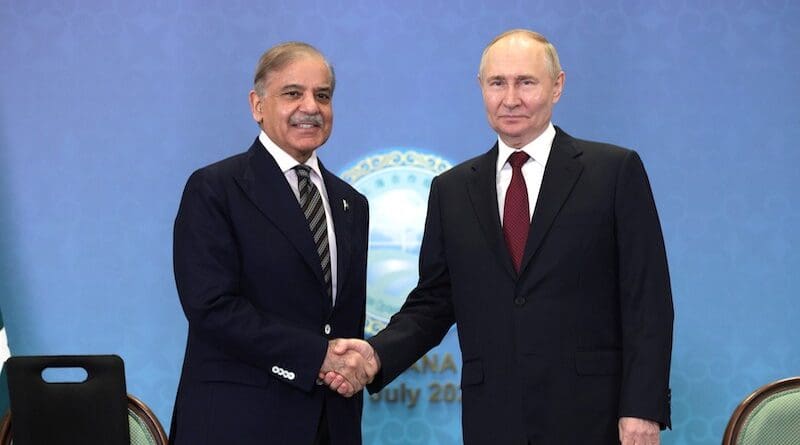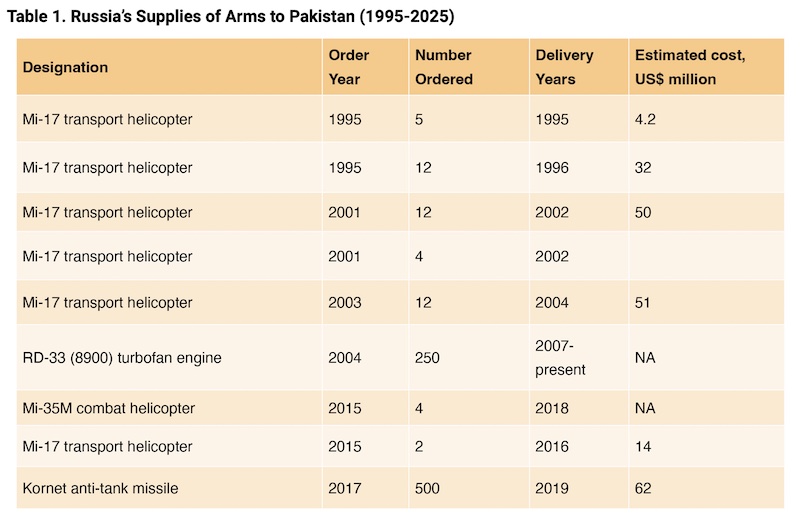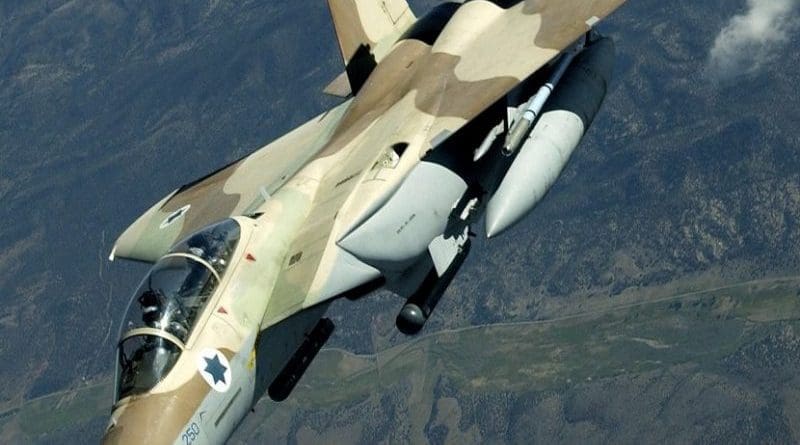Following the Hamas-led attack on southern Israel on 7 October 2023, during which around 1200 Israelis were killed, Israel launched an intensive military campaign in Gaza, with the stated aims of destroying Hamas’s military and governing capabilities and bringing home 251 hostages taken during the incursion. This military campaign has continued, with little interruption, for the past two years.
As of 28 September 2025, the Palestinian Ministry of Health reports a cumulative total of over 66 000 direct conflict-related Palestinian fatalities in Gaza since 7 October 2023, as well as 369 verified deaths from malnutrition. The Israeli campaign has included airstrikes and ground assaults that have damaged or destroyed hospitals, schools and emergency shelters, as well as strikes or attacks on personnel and facilities of United Nations and other humanitarian actors.
A negotiated bilateral ceasefire came into effect between Hamas and Israel on 19 January 2025, part of a planned process supposed to result in the return of all remaining Israeli hostages and an end to the war. The ceasefire collapsed on 18 March, when Israel launched extensive airstrikes into Gaza.
On 16 May 2025 Israel launched Operation Gideon’s Chariots, a major escalation of its military offensive in Gaza with the stated aims of defeating Hamas, destroying its military and governmental capabilities, and increasing pressure for the release of the remaining hostages. On 8 August 2025 it was announced that the Israeli Security Cabinet had approved Prime Minister Benjamin Netanyahu’s proposal for the Israel Defense Forces to take control of Gaza City in a ground assault, which eventually began on 16 September.
The high death toll and the level of destruction in Gaza have aroused growing international concern and calls from states and international organizations for Israel to adopt a less aggressive strategy, lift restrictions on humanitarian access to Gaza, and end the conflict.
Following Israel’s announcement of the planned takeover of Gaza City, the foreign ministers of Australia, Austria, Canada, France, Germany, Italy, New Zealand, Norway and the United Kingdom, along with the High Representative of the European Union for Foreign Affairs and Security Policy, published a joint statement ‘strongly rejecting’ the decision and arguing that the plan risked ‘violating international humanitarian law’.
Nineteen states have formally recognized the state of Palestine since October 2023, including Spain and, in September 2025, France and the UK. This brings the total number of UN member states that have recognized Palestine to at least 151.
In September 2025 the UN’s Independent International Commission of Inquiry on the Occupied Palestinian Territory, East Jerusalem and Israel concluded that the Israeli authorities and Israeli security forces ‘have committed and are continuing to commit . . . genocide against the Palestinians in the Gaza Strip’. The commission also concluded that Israeli President Isaac Herzog, Prime Minister Netanyahu and Defence Minister Yoav Gallant ‘have incited the commission of genocide and that Israeli authorities have failed to take action against them to punish this incitement’. It further said that ‘statements made by Israeli authorities are direct evidence of genocidal intent’ and that ‘the pattern of conduct is circumstantial evidence of genocidal intent and that the genocidal intent was the only reasonable inference that could be drawn from the totality of the evidence’. Among its recommendations to UN member states were to:
Cease the transfer of arms and other equipment or items, including jet fuel, to the State of Israel or third States where there is reason to suspect their use in military operations that have involved or could involve the commission of genocide.
Even before this, several states have announced plans to limit supplies of military equipment to Israel in the past year, citing Israel’s conduct of the war. In July 2025 Slovenia announced that it would prohibit all import, export and transit of weapons to and from Israel and would ‘prepare other national measures against the current Israel Government, whose actions represent serious violations of international humanitarian law’.
This backgrounder looks at developments over the past year in the policy and practice of six of the world’s top 10 exporters of ‘major conventional arms’ in 2020–24, according to the SIPRI Arms Transfers Database, in relation to the war in Gaza. It also includes the latest available SIPRI data on transfers of major conventional arms to Israel. As such, it updates a similar backgrounder by the author published in October 2024. It does not intend to provide an exhaustive overview of all relevant developments, within these states or globally.
Arms transfers to Israel
In the past decade Israel has greatly increased its imports of arms. SIPRI estimates that in the five-year period 2020–24, Israel was the world’s 15th largest importer of major arms, accounting for 1.9 per cent of global arms imports in the period. A decade earlier, in 2010–14, Israel ranked 34th.
Although only three countries supplied major arms to Israel in 2020–24, the United States, Germany and Italy, many others are known to have supplied military components, ammunition or services. This backgrounder looks first at the USA, Germany and Italy, and then at three more states among the top 10 global exporters of major conventional arms: the UK, France and Spain. The four other global arms exporters among the top 10 are excluded from the analysis: Russia and China (the third and fourth largest exporters) because they are not known to supply any arms to Israel; South Korea (the 10th largest exporter) because its exports to Israel are minimal; and Israel itself (the eighth largest exporter).
The United States
According to SIPRI data, in 2020–24, the USA provided 66 per cent of Israel’s imports of major arms. These included aircraft, armoured vehicles, missiles, ships and air defence systems. These transfers were funded by both direct purchases by Israel and US military assistance.
In April 2025 the US government claimed to have provided Israel with over US$130 billion in bilateral assistance since 1948, ‘focused on addressing new and complex security threats, bridging Israel’s capability gaps through security assistance and cooperation, increasing interoperability through joint exercises, and helping Israel maintain its Qualitative Military Edge (QME)’. Israel is the leading global recipient of Title 22 US security assistance under the Foreign Military Financing (FMF) programme, formalized by a 10-year memorandum of understanding (2019–28). Under the memorandum, the USA provides $3.3 billion in FMF and $500 million for cooperative programmes for missile defence annually.
Throughout 2024 and 2025, the USA has continued to support Israel militarily through arms supplies and deployments of its own forces. Arms deliveries in 2024 included missiles, bombs and armoured personnel carriers.
The administration of President Donald J. Trump has signalled its firm commitment to supporting Israel and publicly distanced itself from some of the criticism that Trump’s predecessor, Joe Biden, made of Israel’s actions. In January 2025 President Trump liftedthe hold that Biden had put on the transfer to Israel of a shipment of Mk-84 2000-pound bombs. The hold had been imposed in May 2024 because of concerns about Israel’s planned military offensive in Rafah Governorate.
In 2025 the US State Department has continued to notify the US Congress about a number of potential arms sales to Israel.
In February 2025 the State Department, declaring that an emergency exists to bypass Congressional review, notified Congress about three potential arms sales to Israel: $2.04 billion for 35 529 2000-pound bombs (Mk-84 or BLU-117 general purpose bodies, or a combination of both) and 4000 I-2000 Penetrator warheads; $675.7 million for nearly 5000 1000-pound bombs and guidance kits; and $295 million for Caterpillar D9 bulldozers. In March US Secretary of State Marco Rubio announced that he had signed a declaration to use emergency authorities to expedite the delivery of approximately $4 billion in military assistance to Israel. In the same announcement Rubio said that since Trump had taken office on 20 January 2025, the administration had approved nearly $12 billion in major Foreign Military Sales to Israel.
Germany
In 2020–24 Germany accounted for 33 per cent of Israel’s imports of major conventional arms. These were mainly for Israel’s naval forces: 81 per cent of the transfers were frigates and another 10 per cent were torpedoes. The remaining 8.5 per cent were armoured vehicle engines, including those for armoured vehicles used in the war in Gaza. Sa’ar 6-class frigates (MEKO A-100 Light Frigates) supplied by Germany have also been used in the conflict.
On 8 August 2025 Chancellor Friedrich Merz announced that the German government would not authorize any further exports of military equipment that could be used in Gaza until further notice. Merz reiterated the German government’s positions that Israel has a right to defend itself; that release of all remaining hostages and ‘purposeful’ negotiation towards a ceasefire were the top priority; and that Hamas should be disarmed and ‘must not play a role in the future of Gaza’. However, he said that the German government believed that the ‘even harsher military action’ approved by the Israeli Security Cabinet (referring to the plan to take over Gaza City) would make those goals harder to achieve.
Italy
In 2020–24 Italy accounted for 1 per cent of Israel’s imports of major arms. Most of these comprised light helicopters (59 per cent); the remainder were naval guns (41 per cent) to equip frigates supplied by Germany. Apart from these, Italy is also a partner in the F-35 programme, for which it produces components. The F-35 programme is a US-led programme to produce the F-35 combat aircraft. It involves the production of parts and components by eight partner states, including Italy and the UK (see below). The F-35 has been used by Israel in its military operations, including in Gaza. Concerns about the potential use of the F-35 by Israel to carry out violations of international humanitarian law have led to much criticism of transfers of the aircraft or its parts to Israel.
In an interview in August 2025 published by the Italian foreign ministry, Foreign Minister and Deputy Prime Minister Antonio Tajani condemned Israel’s plan to invade Gaza, saying ‘this carnage cannot continue’. He also stated that ‘since 7 October two years ago, Italy has not sold arms to Israel’. However, following a similar statement by Tajani in January 2024, Defence Minister Guido Crosetto clarified that arms exports to Israel continued, but only deliveries under contracts signed before 7 October 2023, and that these exports were only allowed after checks to ensure that any weapons would not be used against civilians in Gaza.
In its 2024 ‘Report on operations authorized and carried out concerning the control of export, import and transit of weapons materiel as well as the export and transit of high-technology products’, the Italian government mentions—regarding data for authorizations of individual export licences—that: ‘Israel is not included in the 2024 data, as the characteristics of the Israeli intervention in Gaza have led the UAMA national authority not to grant new export authorizations pursuant to Law No. 185/1990.’ The Unit for the Authorization of Armament Materials (UAMA) is Italy’s national authority for export control of arms and dual-use items.
The United Kingdom
According to SIPRI data, the UK has not exported any major arms to Israel since the 1970s. However, the UK does supply Israel with components for various systems such as aircraft, radars and targeting equipment, including components for the F-35 combat aircraft. Export data reveals that, in the last quarter of 2024, the UK approved Standard Individual Export Licences (SIELs) for exports of military goods to Israel worth £127.6 million ($170.8 million)—more than the combined exports between 2020 and 2023.
In September 2024 the UK suspended around 30 previously issued licences for exports of military equipment to Israel that could be used in Gaza. The decision excluded ‘UK components for the multi-national F-35 joint strike fighter programme . . . except where going directly to Israel’.
A report jointly published in May 2025 by the Palestinian Youth Movement, Workers for a Free Palestine, and Progressive International analysed Israeli Tax Authority (ITA) data to argue that, between October 2023 and March 2025, thousands of military goods were sent to Israel from the UK. The report garnered media and political attention in the UK, leading a senior figure in the Labour Party, John McDonnell, to call for a full investigation into Foreign Secretary David Lammy, arguing that Lammy may have misled parliament, in breach of ministerial code. Lammy subsequently denied this. It is worth noting here that ITA data cannot necessarily be taken at face value, as there are issues that complicate the determination of imports of military equipment, including ambiguities in the recording of the data.
On 30 June 2025 the High Court of Justice in London dismissed a legal challenge against the UK government brought by Palestinian human rights organization Al-Haq (with Oxfam, Amnesty International UK, and Human Rights Watch as interveners). Al-Haq had argued that the decision to exclude transfers of F-35 parts from the suspension of arms export licences to Israel announced in September 2024 (unless they were supplied directly to Israel) was unlawful. The issue of jurisdiction was key to the decision, with the court concluding that the issue of whether the UK must withdraw from the F-35 programme was not a matter for courts to decide, but for the executive.
In August 2025 Israel’s Ministry of Defense announced that there would be no Israeli national pavilion at the Defence and Security Equipment International (DSEI) UK arms fair in September, due to the UK government placing ‘unilateral restrictions’ on Israeli officials’ and military representatives’ participation.
The UK government’s statement on recognition of Palestine did not include a clarification on how this might impact the supply of arms or military equipment to Israel.
France
SIPRI data does not show any French exports of major arms to Israel in 2020–24. The last recorded exports of major arms to Israel from France were in 1998. However, France has supplied components for arms.
In a radio interview released on 5 October 2024, French President Emmanuel Macron said: ‘I think the priority today, is to go back to a political solution, to stop delivering arms to carry out fighting in Gaza. France does not deliver them.’ At the Francophonie summit meeting the same day, Macron stated: ‘If one is calling for a ceasefire, coherence would be to not supply weapons of war.’ These statements sparked a strong response from Prime Minister Netanyahu, following which Macron’s office issued a statement that France remained a steadfast friend of Israel.
In June 2025, aiming to silence ‘continual accusations’ that France continued to supply arms to Israel, Minister of the Armed Forces Sébastien Lecornu declassified a document listing arms components exported from France to Israel in 2024, which he claimed were strictly for the defence of the civilian population or destined for re-export and showed that France does not export arms to Israel. The declassified document reportedly details subcategories, including parts supplied for ‘re-export only’ and others for Israel’s Iron Dome air-defence system.
In September 2025 French media outlet Mediapart obtained a copy of the Ministry of the Armed Forces’ 2025 report to parliament on arms exports, covering 2024. The report says that the value of French deliveries to Israel fell by half in 2024 compared with 2023, although the value of new orders reached €27.1 million ($30.8 million), above the average for the decade. The report also says that two thirds of these orders were for components ‘that will be integrated into systems for re-export to third countries’, and reiterated the official policy position that France exports to Israel only components intended for re-export or for defensive systems.
Transfers of military equipment to Israel have continued to come under scrutiny and criticism in France. For example, in June 2025, dock workers in a port near Marseille refused to load crates containing ammunition links manufactured by the French company Eurolinks onto a ship destined for Israel. In a televised response, Lecornu said that one reason France did not export arms to Israel was that ‘Israel is one of the main competitors to the French industry’.
France has also taken measures to limit the representation of Israeli arms producers at French arms fairs. For example, in June 2025 the French government ordered the closure of five stands hosted by Israeli arms manufacturers (Aeronautics, Elbit Systems, Israel Aerospace Industries, Rafael and UVision) at the Paris Air Show for showcasing ‘offensive weapons’.
Spain
Since October 2023, the Spanish government has advocated restrictions on the supply of arms to Israel in international forums and the media.
Spain’s latest national report on exports of defence and dual-use material, covering the first half of 2024, states that Spain has implemented an ‘extremely restrictive’ policy on issuing export licences for defence materials to Israel, and has authorized ‘no permanent exports of any lethal weapons or equipment’ since 2001. Furthermore, since October 2023, no new ‘definitive export operations of defence material’ to Israel have been authorized. The report states that in the first half of 2024, the only defence-related exports were some ‘non-lethal’ items sent to Israel for repair and maintenance before being returned to Spain or sent on to the Philippines armed forces.
Spain has not only limited arms exports to Israel but also sought to restrict arms imports from that country.
In September 2025 Spanish Prime Minister Pedro Sánchez announced that his government would adopt nine ‘additional measures’ that aimed to help ‘stop the genocide in Gaza, prosecute its perpetrators, and support the Palestinian population’. The new measures include the approval of a law legally consolidating the arms embargo on Israel imposed in October 2023 and establishment of a permanent legal ban on the purchase from and sale to Israel of weapons, ammunition and military equipment. Furthermore, all state aircraft transporting defence material destined for Israel were to be denied entry to Spanish airspace.
This followed the cancellation of a €6.6 million ($7.1 million) contract for bullets from an Israeli company in April 2025, and of a contract to purchase 165 Spike LR2 anti-tank missile systems and 1650 Spike missiles from Elbit Systems, worth €285 million ($324 million).
Following the announcement of the new measures, Spain cancelled a contract for Israeli-designed rocket launchers (12 SILAM rocket launcher systems based on the PULS platform made by Elbit Systems), which had been ordered in 2023.









